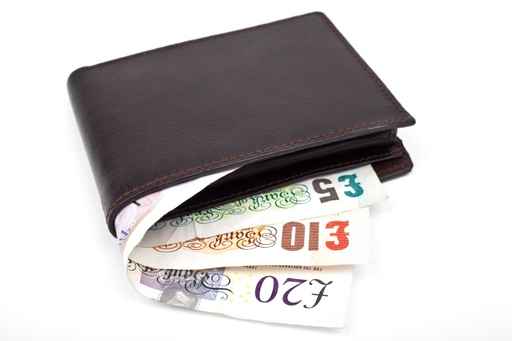Money

Quick Links on this page
Don’t spend money
Register as Self Employed
Register for National Insurance
Loans and Grants
Other sources of money
Don’t spend money or take out loans
The Escape Route mantra is: ‘Don’t spend money on the business unless you absolutely have to’.
Here’s an example of how to avoid spending. Amstrad, the company run by Alan Sugar, famous for being on on the Apprentice, won the contract to make Sky satellite dishes. He was quoted £30 to produce each dish. Sir Alan held it in the air and said “This isn’t a dish, it’s a dustbin lid”. He then approached a dustbin company and they quoted him £4 a dish!
So the moral of the story is, don’t accept the norm. Look at ways of simplifying things to reduce costs. Do you need to buy the specialist tool? Is there another tool to do the job? If you must have it, can you borrow one or buy second hand?
How much money do you REALLY need to start your business and what can you do without?
Prison rules apply: if you haven’t got it, borrow it or make it!
Every penny you spend on your business is part of a pound that doesn’t go into your pocket!
You have up to 3 months after starting your business to register as self-employed. You can register with HMRC online here https://online.hmrc.gov.uk/registration/options.
You’ll be asked for information about yourself and your business. HMRC will set up tax records for you using the information you provide.
Register for National Insurance
When you register yourself as self-employed with HMRC they will give you an option to register to pay your own National Insurance contributions.
If you’re self-employed you pay Class 2 and Class 4 National Insurance contributions. The rates are:
• Class 2 National Insurance contributions are paid at a flat rate of £2.65 a week
• Class 4 National Insurance contributions are paid as a percentage of your annual taxable profits – 9 per cent on profits between £7,605 and £42,475.
If your profits are expected to be less than £5,595 you may not have to pay Class 2 National Insurance contributions.
All The Escape Route plans are created to launch with little or no start-up costs. Depending on your family or home situation you may decide to seek funding. But applying for grants is time consuming. If instead you put the effort into launching your business on a shoe string, the chances are you will be up and running and earning a wage long before any funding becomes available.
And most people don’t succeed in getting a grant. Read our comments here: Grants? They don’t exist.
If you really need funding, you could try the following.
Government Grant
New Enterprise Allowance: Speak to a Job Centre Plus advisor about this scheme. You have to be on Job Seekers allowance for six months. Then you get help to develop a business plan. If you produce a business plan, you will come off JSA, get an allowance of £65-a-week for another six months and then £33 a week for a further 13 weeks, plus you can get a loan of up to £1,000 to help with start-up costs. But six months is a long time to wait. You will have to attend business mentoring meetings, which may or may not be helpful.
Government Loan
Start up Loan: The UK government provides a Start Up Loan help you start your business. The loan is a personal loan given for business purposes. Your loan application will be considered according to the needs of your business. You have to repay the loan. It is not a grant. A lean means you have extra debt to pay out every week. If you cannot repay the loan, you will end up in the courts and being chased by bailiffs.
Housing Association. Your housing association may have a project to support and fund start-up businesses. But any funding will be in the very low hundreds.
Chamber of Commerce. As well as business advice your local branch may also offer funding.
Princes Trust. They offer support and grants. These are only available to 18-25 year olds.
See also: https://theescaperoute.com/tell-the-taxman-but-ill-lose-my-benefits/
